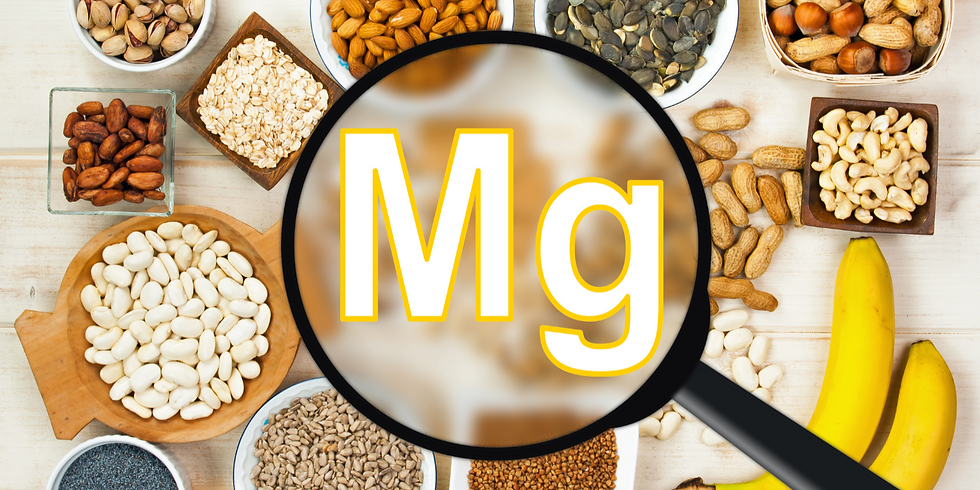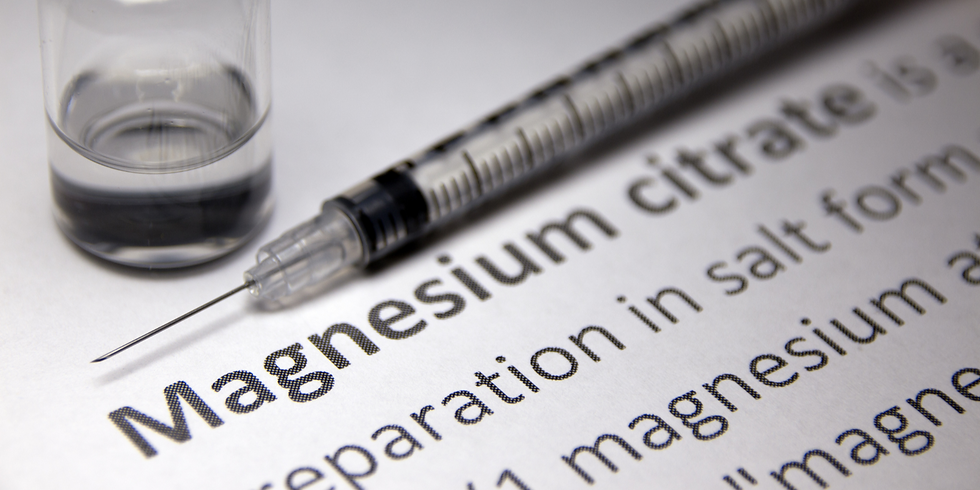Vitamin Deficiency That Causes Fatigue
- Katie Bailey, MS, RD, LD, FNC

- Aug 6, 2024
- 5 min read
Hi everyone. Welcome back to our channel.
Fatigue or low energy levels are one of the top 10 reasons individuals visit their healthcare provider.
Two thirds of individuals struggling with fatigue cannot determine an exact root cause.
Constantly feeling drained or exhausted can significantly impact your quality of life.
So in today's video, I'll be addressing these questions.
What are the possible causes of low energy or fatigue?
Which nutrient deficiencies play a role in fatigue?
And lastly, what are some lifestyle changes that can help with low energy?
[Video Transcript Below + Supplement Links Discussed In Video]
Hi, I'm Katie Bailey. I'm a registered dietitian at Flusso Nutrients where we provide supplement education and professional quality supplement options for you to make the world of nutrition supplements a little bit easier to navigate.
As always, be sure to check with your main nutrition literate healthcare provider before starting anything new. As we can't know your full medical history to provide a personalized recommendation. So without further ado, let's jump into today's topic.
What are the possible causes of low energy and fatigue?
Low energy levels and fatigue are often attributed to our fast-paced lifestyles, stress, lack of exercise, poor sleeping habits, as well as medication side effects.
Low energy levels are also associated with specific medical conditions like autoimmune disorders like hypothyroidism, depression, or anxiety, as well as infections like Lyme and Epstein-Barr virus.
Vitamin Deficiency That Causes Fatigue
Now, however, the root cause of your low energy may also be a nutrient deficiency that is overlooked, or in other words, a vitamin deficiency that causes fatigue.
Identifying and addressing these deficiencies can be a game changer in boosting your energy levels, which nutrient deficiencies play a role in low energy levels.
So although there are multiple different nutrients that can impact an individual's energy levels, I'll be discussing three of them today, which are the common ones that I see in practice.
Vitamin B12
The first one is vitamin B12. Now, vitamin B12 is also known as cobalamin, and it's a water-soluble vitamin.

It plays a vital role in energy production because it is needed to convert the food that we eat into energy.
So if we're low in B12, our body's not going to be as efficient at converting that food into energy, which is going to help or cause fatigue. It's also essential for the proper functioning of our nervous system and the formation of our red blood cells.
Common symptoms that we see with B12 deficiency are extreme fatigue and weakness, shortness of breath, lightheadedness, a rapid heartbeat, numbness and tingling, depression, and a loss of appetite.
Now, since we cannot make B12, we need to get it through our diet or supplementation.
So some food sources of B12 include our meats, fish, eggs, and dairy.
Iron
The second nutrient that can affect our energy levels is iron. Now, iron is a mineral that plays a crucial role in the production of hemoglobin.
Hemoglobin is a protein in our red blood cells that are responsible for transporting oxygen throughout the body.
When iron levels are low, our body's ability to carry that oxygen is compromised, and this is what's going to lead to fatigue.
Individuals can become deficient in iron when they have heavy menstrual cycles or GI conditions that affect iron absorption or vegetarian diets.
Common symptoms include fatigue, shortness of breath, dizziness, pale skin, as well as headaches. Some food sources of iron include red meat, spinach, lentils, and fortified cereals.
Vitamin D
The last nutrient that can affect energy levels is vitamin D, and vitamin D is also known as cholecalciferol, and it's a fat-soluble vitamin. It plays a crucial role in various processes in the body, including calcium metabolism, parathyroid secretion, bone health, muscular function, and immune function.
Vitamin D affects the mitochondria in our muscle cells, which are the parts of the cells that produce energy, also known as a ATP.
Although our bodies can produce vitamin D through sunlight exposure, many individuals struggle with vitamin D deficiency due to northern latitudes or limited sun exposure, excessive use of sunscreen or poor absorption.
Now, common symptoms include fatigue or low energy, muscle weakness or cramping, bone pain or fractures, depression or mood changes.
And there are some foods that have vitamin D, things like fatty fish, salmon, tuna, in particular, egg yolks, fortified milks, juices, and cereals.
While vitamin B12, iron and vitamin D are some of the most common nutrient deficiencies we see with low energy and fatigue, there are other vitamins and minerals that play a role in maintaining optimal energy levels.
These include things like magnesium, folate, thiamine, which is B1 and riboflavin, which is B2.
Lifestyle Changes To Improve Energy
So what are some lifestyle changes that can help with low energy while addressing nutrient deficiencies is beneficial?
There are also several lifestyle changes that can help combat fatigue and boost energy levels.
The first is consuming a whole foods nutrient dense diet so that you can provide the adequate vitamins and minerals that are needed for energy production.
The second is to limit your consumption of alcohol as excess alcohol can deplete nutrient levels, and then lastly, manage your stress levels as chronic stress can also deplete nutrients, which is going to increase your nutrient requirements.
In Summary
To wrap up our topic for today, feeling tired and low on energy can significantly impact your quality of life. While there can be various underlying root causes, nutrient deficiencies are often overlooked as a contributing factor.
If you're struggling with persistent low energy levels or fatigue, you may want to consider whether you may be deficient in B12, vitamin D or iron.
By addressing these deficiencies, you may notice a significant improvement in your energy levels. If you're interested in trying any of these supplements, I'll link a few quality options below in the description box.
That's it for today's video. If you like this video, please hit the like button and subscribe for more nutrition videos.
Let us know in the comments your experience with low energy or whether you've tried any of these supplements before to help.
If you're interested in working with our clinic, you can click the link here to schedule an appointment.
We do take insurance and you can find more information about that on our website.
Thank you for watching. I'll see you next time. Bye.
Check out the high-quality supplements we discussed in this video - links below for your convenience!
1) Vitamin B12: https://flussonutrients.nutridyn.com/b12-pro
2) Vitamin D: https://flussonutrients.nutridyn.com/d3-5000-with-k2
3) Iron Bisglycinate NSF by Thorne: create an account here, then search the name "Iron Bisglycinate NSF by Thorne" - https://us.fullscript.com/welcome/flussonutrients
3) ALL PROFESSIONAL QUALITY SUPPLEMENTS: https://flussonutrients.nutridyn.com & https://us.fullscript.com/welcome/flussonutrients




Comments